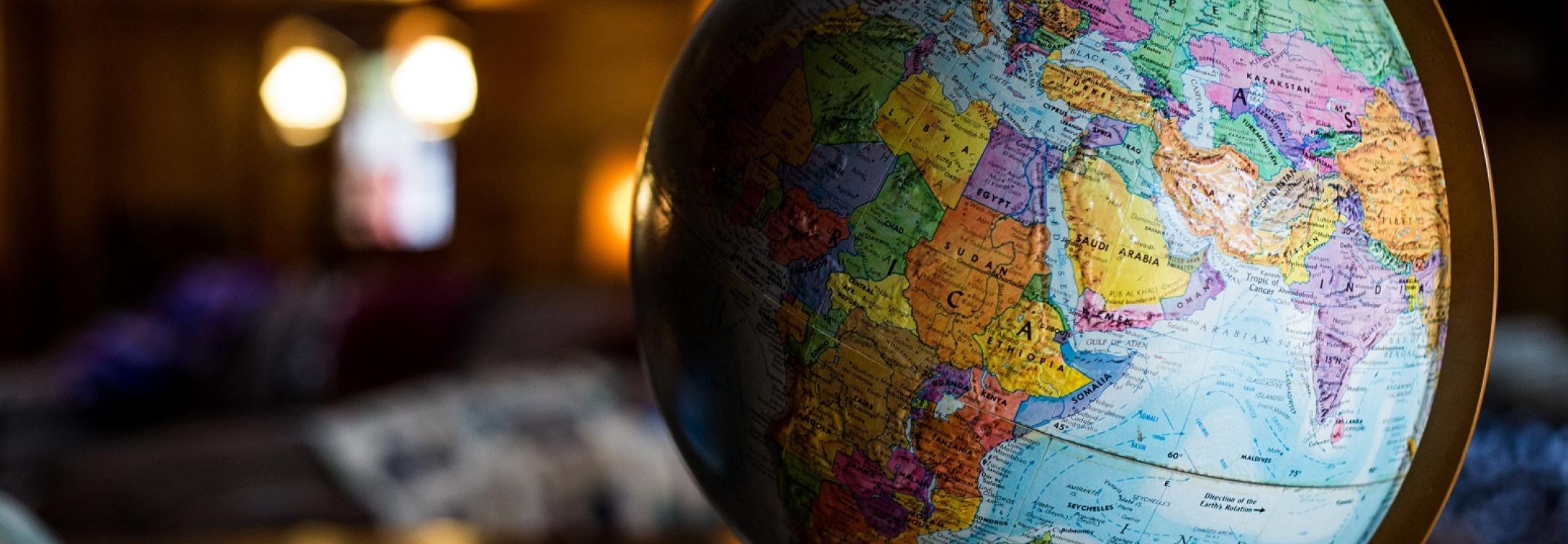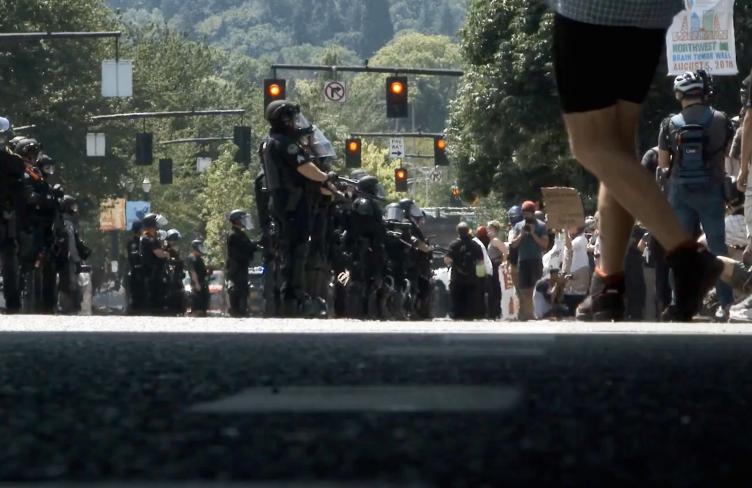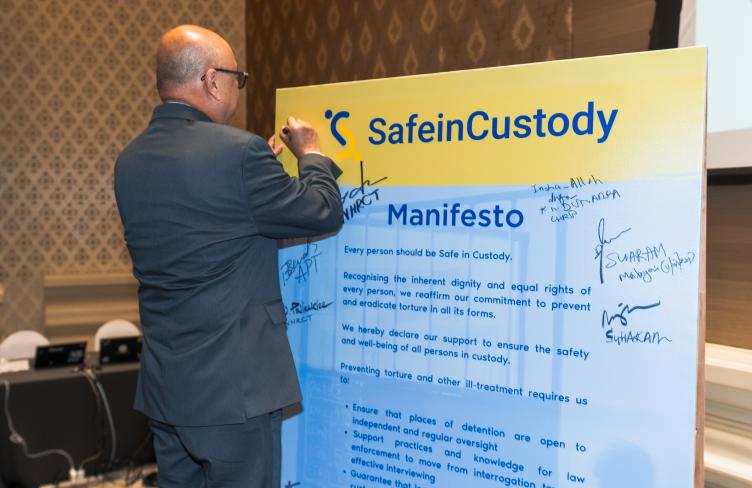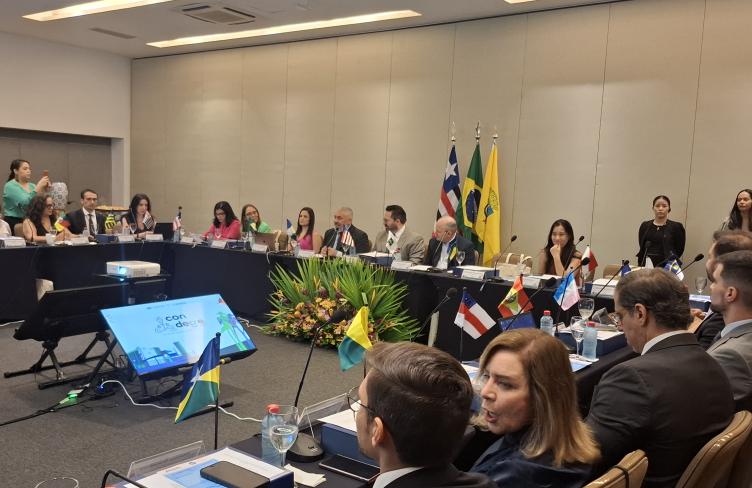
Le Conseil des droits de l'homme des Nations Unies a nommé Nils Melzer, Suisse, comme prochain Rapporteur spécial de l'ONU sur la torture, succèdant à Juan Méndez le 1er novembre. Lire l'interview de l'APT avec Nils Melzer sur son rôle, le mandat et les principaux défis pour les années à venir.
First, congratulations on the new role. Can you tell us a little about your experience to date?
In the course of my professional career, I have had the opportunity to work for 12 years as a Delegate and Legal Advisor with the ICRC, conducting detention visits and other protection activities in various contexts of conflict and violence. This certainly has been one of the most important experiences of my personal and professional life, providing me with a solid methodological basis for the Special Rapporteur on Torture mandate. Apart from my operational experience, I have also served the Swiss Federal Department of Foreign Affairs as Senior Adviser on Security Policy and have assumed a number of academic functions at the Swiss Competence Center for Human Rights, the Geneva Center for Security Policy and the Geneva Academy for International Humanitarian Law and Human Rights, most recently as their Human Rights Chair.
Your experience includes areas of humanitarian law. How do you think that this experience can be applied in the mandate of the Special Rapporteur?
Torture and other forms of cruel, inhuman and degrading treatment or punishment are prohibited both under human rights law and under international humanitarian law. Whenever violence crosses the threshold of armed conflict, international humanitarian law becomes the primary legal framework of reference, notwithstanding the continued applicability of human rights law. One of the practical advantages of humanitarian law is that its norms are specifically crafted for, and therefore more likely to provide an adequate response to, some of the specific circumstances and risks arising in armed conflicts. Very important is also that humanitarian law is formally binding, not only on States but also on non-state armed groups, and therefore provides an objective international standard by which to measure the permissibility of their conduct.
What do you see as some of the priorities and main challenges in the coming years for the mandate?
The aim and purpose of the Special Rapporteur on Torture mandate has remained essentially the same ever since it was created in 1985, and it will of course be important to continue that work in the future, including country visits and individual communications. In terms of thematic scope, the SRT's mandate has been conceived and interpreted very broadly, ranging from torture of prisoners to basically any treatment or punishment that may be considered cruel, inhuman or degrading. Therefore, it is difficult to single out any particular issue without implying that others are less important. My personal view is that the issue of torture and other forms of cruel, inhuman and degrading treatment or punishment is a universal and transversal one. Thus, we cannot limit our focus to tragic "hotpots" such as the current war in Syria, but have to look at it from a more global perspective. One way of doing this is to identify general challenges and trends, such as mass migration and transnational crime, and to try to understand how they might give rise to particular risks. Based on this understanding, the Special Rapporteur can then meaningfully engage with the relevant stakeholders, with a view to avoiding torture and other forms of cruel inhuman or degrading treatment or punishment.
There are now multiple Treaty Bodies and Special Procedures which engage States on issues of torture, ill-treatment, and the protection of human dignity. How do you see your mandate in relation to these, and how do you think you could work together to ensure consistency?
Today, of course, we have numerous international and non-governmental actors active in the field of this mandate, making it important to understand the respective roles, to cooperate wherever appropriate and to focus on those functions and added values that are specific to the Special Rapporteur on Torture. For example, one of the specificities of all special rapporteurs is their independence, which allows them to put issues on the international agenda that for some reason have stayed below the radar of the international community. The Special Rapporteur on Torture is also a prominent international institution that victims and their families can have direct access to without procedural obstacles. These and other specificities allow the Special Rapporteur to make an indispensable contribution to international efforts with regard to the prevention of torture and other forms of ill-treatment.
Your reach is universal, to all 193 member states of the UN. This gives you more opportunity to liaise with non-states parties to the Convention against Torture and its Optional Protocol than treaty bodies, such as the Committee against Torture and Subcommittee on Prevention of Torture. How do you intend to work with States that have not made treaty commitments?
In my view, when working with States - and with any other stakeholder for that matter - there is no "one size fits all". In any conversation of a certain complexity, it is important to be able to listen carefully to understand the concerns, the challenges and the overall situation in the country in question in order to identify the most suitable manner of cooperation. Ultimately, it is not treaty participation which should be the primary focus of the Special Rapporteur's action, but the actual establishment and consolidation of norms, structures and procedures for the effective prevention of torture or other forms of cruel, inhuman or degrading treatment.
We have seen that all of the work expected of the Special Rapporteur on Torture is typically far too much for any one person to achieve. How do you choose between priorities (and will you have a good team behind you, to help with these plans)?
Given the scope of the mandate the potential tasks of the Special Rapporteur are not only numerous, but virtually uncountable, and I am happy to be able to count on the support of my team. This type of situation is not new to me. When I worked for the ICRC in zones of conflict we were confronted, on a daily basis, with completely unrealistic expectations on the part of victims, detainees, family members, authorities, armed actors and even the press. In such situations it is important to stick to a clear and transparent methodology and to manage resources responsibly so as to complement and upgrade, rather than duplicate or compete with, what other stakeholders and organisations are doing and to focus on those areas and cases in which the Special Rapporteur's unique role can be of decisive added value.
The APT, among other civil society organisations, is keen to engage with you to share experiences and support your work. What do you see is the role of civil society, and independent state institutions such as National Human Rights Institutions and National Preventive Mechanisms, in the work of your mandate?
Civil society, as well as independent State institutions, are, of course, important stakeholders and indispensable partners for the Special Rapporteur. In carrying out this mandate, I will always strive to understand the commonalities and differences in the respective roles of all involved stakeholders - and I look forward to working fruitfully with each of them towards our common goal of a world without torture and other forms of cruel, inhuman and degrading treatment.


